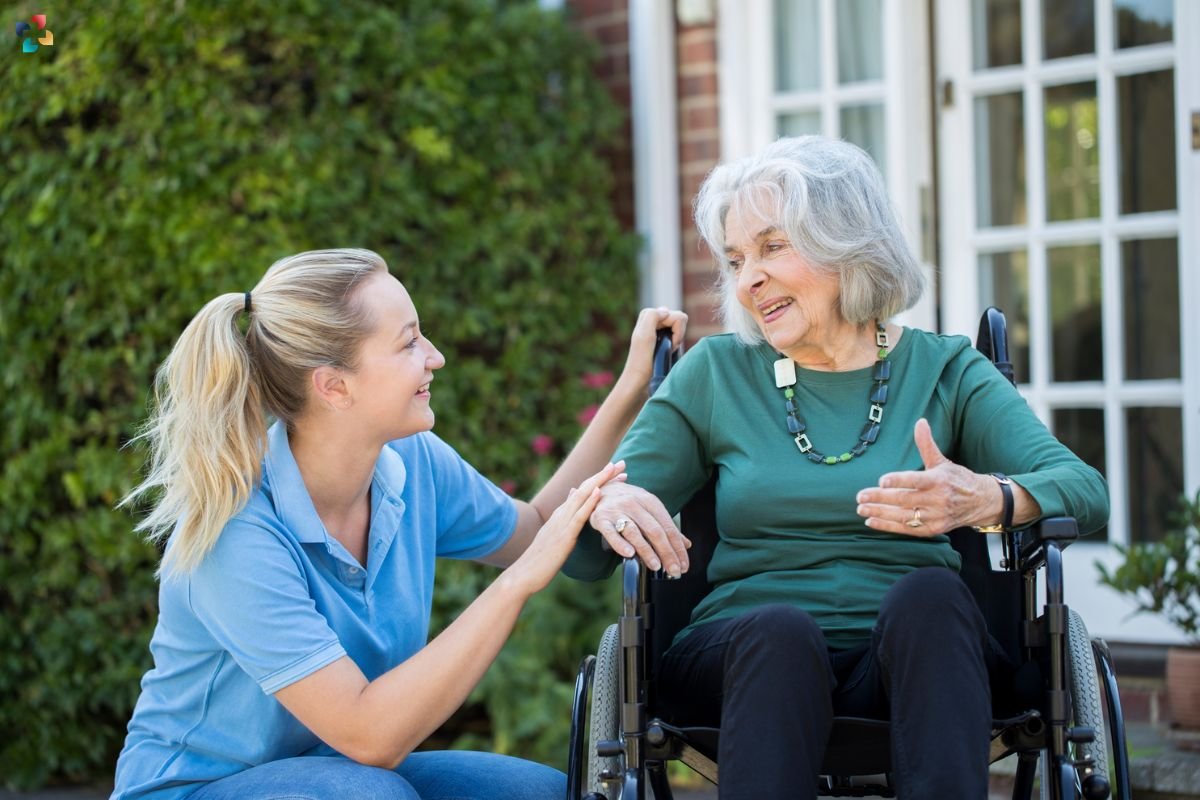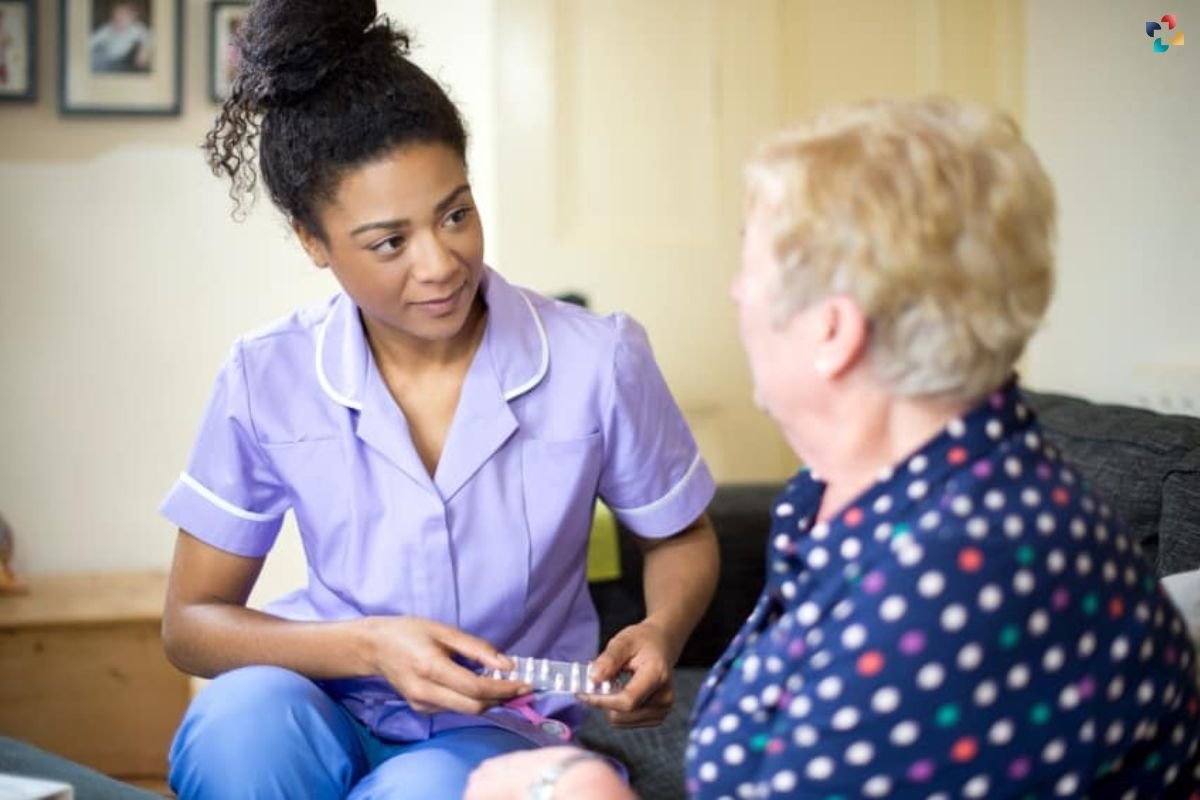Being a caregiver when far away is a stressful task. Always being in the horror of what if something goes wrong haunts us as we care for our loved ones. Long-distance caregivers always want to be in close proximity with their loved ones to be available when need be. They always want to showcase their effective caregiver side.
But due to work or other personal constraints being far from them is the path ahead. As the parents are quite elderly, the need for someone to be there for them at all times is there to avoid any mishaps. Taking care of loved ones from a distance can be a bit impossible due to the distance. Keeping a full-time person for them to take care of them is the key, but whether the loved one is in safe hands or not, remains a doubt.
Relocation is due to work-life balance, which is the only solution at times. Delegation of responsibilities between siblings goes on when it comes to taking care of loved ones. But every time it isn’t possible.
To avoid the same, here we bring you an article on How to Be an Effective Caregiver When You Live Far Away.
Here Are 3 Important Points To Be An Effective Caregiver When You Live Far Away:
1. Stay Connected with the Appointed Caregiver

Being an effective caregiver from a distance relies heavily on your ability to maintain communication and oversight of the caregiver you have chosen for your loved one. Here are some ways to stay connected:
- Regular Video Calls:
Set up regular video calls with the appointed caregiver and your loved one. This allows you to check in visually and observe the quality of care provided. Video calls also provide a sense of connection for your loved one.
- Establish Clear Communication Channels:
Create a communication plan that includes regular updates on your loved one’s condition, medication, and any concerns or changes in their needs. Utilize email, text messages, and phone calls to stay in touch.
- Online Caregiver Platforms:
Explore online caregiver management platforms and apps that allow you to track schedules, receive updates, and communicate with the caregiver in real time. These tools can provide transparency and ease of coordination.
- Family Meetings:
Organize family meetings, either in person or virtually, to discuss your loved one’s care plan. This allows you to involve other family members in the decision-making process and ensures everyone is on the same page. This is a good practice to be sure of your loved ones’ health while you too feel like an effective caretaker.
- Trust and Open Communication:
Foster a relationship of trust and open communication with the appointed caregiver. Encourage them to share any concerns or observations promptly.
2. Factors to Consider When Hiring a Full-Time Caregiver

Choosing the right caregiver is crucial when you live far away, as they become your eyes and hands in providing care for your loved one. Here are essential factors to consider:
- Qualifications and Experience:
Assess the caregiver’s qualifications, certifications, and experience in providing care for individuals with your loved one’s specific needs, whether it’s elderly care, disability care, or specialized medical care. An experienced person knows how to handle the elderly person well and with ease.
- References and Background Checks:
Request references and conduct background checks to ensure the caregiver has a clean record and a history of providing high-quality care. This step is essential for your loved one’s safety. To be an effective caregiver, a thorough background check is of utmost necessity.
- Compatibility:
Evaluate whether the caregiver’s personality and communication style align with your loved one’s preferences. A compatible caregiver can build a more positive and trusting relationship with your loved one. You will also not be worried about the situation,
- Flexibility and Availability:
Confirm the caregiver’s availability and willingness to adapt to your loved one’s changing needs. This includes being available during emergencies or unforeseen circumstances.
- Legal and Regulatory Compliance:
Ensure that the caregiver complies with all relevant laws and regulations, such as licensing and certification requirements, especially if they are administering medical care.
- Trial Period:
Consider a trial period before committing to a long-term arrangement. This allows you to assess whether the caregiver is a suitable fit for your loved one’s needs. A trial period when done, you can neatly observe the comfort of your loved one with the caretaker. Doing this is necessary, it will make you a good and effective caretaker too.
- Backup Plan:
Develop a contingency plan in case the appointed caregiver becomes unavailable due to illness or other emergencies. Having a backup caregiver or agency in mind is essential for continuity of care. To avoid disturbance in the loved ones’ schedule, a backup plan is important. It will help you to be stress-free and will make you an effective caregiver.
- Care Plan and Goals:
Collaborate with the caregiver to create a detailed care plan that outlines your loved one’s specific needs, preferences, and goals. Regularly review and update this plan as necessary.
- Communication Skills:
Assess the caregiver’s ability to communicate effectively with both your loved one and the family. Clear communication is vital for sharing information and addressing concerns.
3. Strategies for Effective Caregiving from Afar

Now that you have chosen the right caregiver and established ways to stay connected, here are some strategies to ensure effective caregiving from a distance:
- Regular Assessment:
Schedule periodic assessments of your loved one’s well-being. These assessments can be conducted by medical professionals or through video calls with the caregiver.
- Monitoring Devices:
Invest in home monitoring devices that can track your loved one’s health and safety, such as medical alert systems, fall detectors, or smart home technology. Make use of the technology available, it will help you be an effective caregiver.
- Remote Medication Management:
Explore medication management services or devices that help ensure your loved one takes their medication as prescribed. This can reduce the risk of medication errors.
- Documenting Care:
Encourage the caregiver to maintain detailed records of daily care activities, including medication administration, meals, exercise, and any changes in your loved one’s condition.
- Coordinate Local Support:
Identify local resources and support networks, such as neighbors, friends, or community organizations, who can assist your loved one when needed. Share this information with the caregiver.
Conclusion
Becoming an effective caregiver when you live far away is a challenging but achievable task. By staying connected with the appointed caregiver, carefully considering the factors when choosing full-time care, and implementing effective caregiving strategies, you can ensure your loved one receives the care and support they need. Remember, the role of an effective caregiver is not defined by proximity but by dedication and thoughtful planning. Your commitment to your loved one’s well-being can make a significant difference in their quality of life, no matter the distance.






